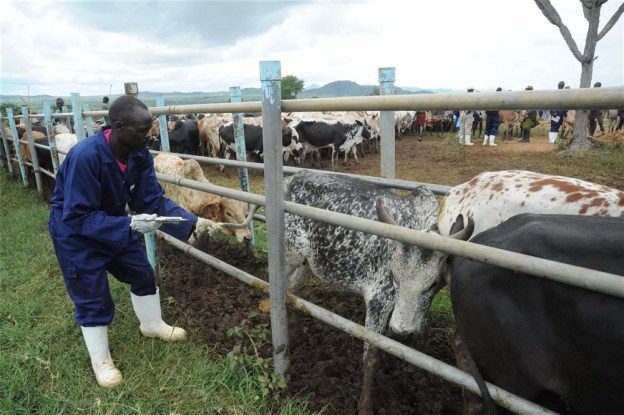There are no products in your shopping cart.
| 0 Items | £0.00 |


SIX of Nigeria's 36 states have stated that they will not participate in the federal government's National Livestock Transformation Programme (NLTP) amid fears that it could cause more problems than it is designed to solve by increasing communal strife.
Over recent years, Fulani cattle herdsmen have turned Nigeria into a war zone as their livestock destroy farms and when farmers complain, their attack their communities with AK47 assault rifles. Under pressure to rein in the herdsmen by compelling them to open ranches, the federal government came up with the NLTP.
Under the NLTP, states will offer land to herdsmen so they can open cattle colonies but this does not address the problem of them coming with their AK47 assault rifles. In addition, these herdsmen are feared for the violent acts they carry out, including rape, murder and kidnapping, which has made many communities wary of having them in their midst.
As a result the Delta, Cross River, Anambra, Akwa Ibom, Oyo and Edo state governments have said they will not donate any land to be used as grazing reserves under the NLTP. However, 17 northern states and the Federal Capital Territory, as well as Ekiti, Ondo and Ebonyi states have signed up for the programme.
In February, the federal government had mapped out 30 grazing reserves across the country for the planned implementation of the NLTP. However, the plan is based on state governments making land available for the programme.
Dr Andrew Kwasari, President Muhammadu Buhari's senior special assistant on agriculture, said: "Every state that adopts the NLTP is to its own reality. It is not conscription but if they do it this way, it will modernise livestock and crop production, remove conflict, create dialogue, and create cohesion in communities.”
Charles Aniagwu, the Delta State commissioner for information, said: “I don’t know the one they are talking about. We have passed the issue of debate on grazing reserves and anybody talking about grazing reserves now does not wish this country well.
“Is the federal government rearing cattle? Cattle-rearing is a private business and if a person needs land for ranching, they should buy. Ours is to regulate their activities and collect tax from them. We don’t have land to give anybody.”
C-Don Adinuba the Anambra State information commissioner added: “Ranching is big business. If herders apply for land to do their business, we can consider allotting land to them but government cannot on its own start establishing grazing reserves because the era of government going into full-scale businesses has gone.
"Private sectors drive the economy all over the world. Besides, we don’t have the land as Anambra has the smallest landmass in the country after Lagos, so we don’t have that luxury of land for grazing reserves.”
Ini Ememobong, the Akwa Ibom State information commissioner, said: “We are not creating grazing reserves. However, if the people want to do ranching as a private business, they can do so at their expense in line with normal land acquisition processes.”
Okon Owuna, the Cross River State agriculture commissioner, said the government did not have any immediate plans to create grazing reserves for herders. He noted, however, that the Obudu Ranch Resort was a grazing site in the state.
Mr Taiwo Adisa, Governor Seyi Makinde's chief press secretary, added: “If you are conversant with the Oyo State’s anti-open grazing law, it has already spelt out the relationship between farmers and herders. It has also spelt out the position of the state on livestock rearing in the state.
“The law signed by the governor says there won’t be open grazing of livestock in the state and there won’t be child grazing in the state and that anybody who is interested in grazing in the state can apply for ranches. If he spots a piece of land, he can apply to the landowner for a lease of the land for three years and it is renewable.
"Once the landowner agrees to the proposal, he would submit it to the ministry of agriculture and natural resources, which will, in turn, submit an application to the ministry of environment to conduct an environmental impact assessment.”